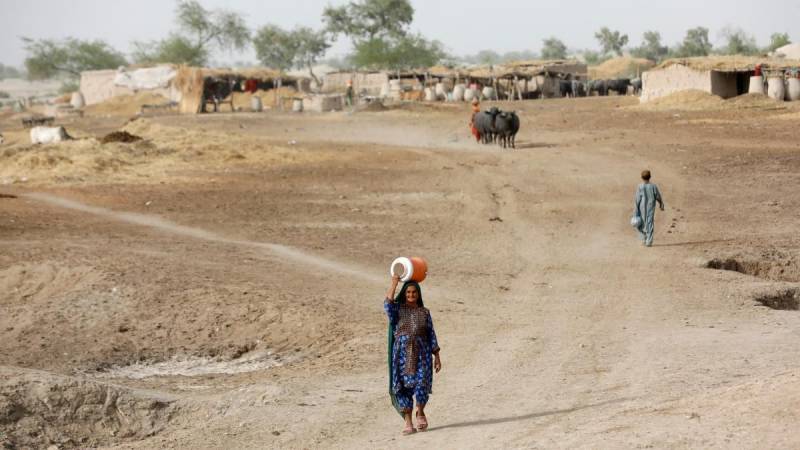
In a stark reminder of the escalating climate crisis, the world bore witness to an alarming milestone last month. July 2023 has now etched its name in history as the hottest July on record. Both land and sea experienced abnormally high temperatures, causing concern among climate scientists and policymakers. The Copernicus climate change panel, a vital entity within the European Union, sounded the alarm about the unprecedented heatwave and emphasized the urgent need for global efforts to combat climate change.
The Copernicus climate change panel, renowned for its meticulous monitoring and reporting on climate trends, confirmed that the temperatures in July 2023 shattered previous records. Scientists had forewarned towards the end of June that the month could potentially mark a devastating milestone as the world's hottest month ever recorded. The reality unfolded, serving as a grim reminder of the climate crisis's intensifying impact.
Samantha Burgess, the Deputy Head of Copernicus, highlighted the gravity of the situation. She stressed that both global air temperatures and global ocean surface temperatures achieved new all-time highs in July. This unambiguous evidence underscores the critical role of human activities, primarily the emission of greenhouse gases, in propelling these alarming records.
This surge in temperatures is not an isolated incident but rather a consequence of a warming trend that has been accelerating for decades. Samantha Burgess lamented that this year stands as the third-warmest year on record. These unnerving statistics lay bare the profound effects of climate change, further corroborated by the intense heatwaves and wildfires that have been ravaging various parts of the world in the last decade.
The driving force behind these rising temperatures is unambiguous: greenhouse gas emissions. As the world's biggest fuel corporations continue to burn fossil fuels, releasing industrial pollutants, and deforest vast regions, the Earth's delicate climate balance is disrupted. This leads to a vicious cycle of warming that exacerbates natural disasters, and sea-level rise, and destabilizes ecosystems.
The repercussions of these unprecedented temperatures are felt across the globe. Regions that were once relatively immune to extreme heat are now grappling with sweltering conditions. From the scorching Death Valley in California, USA, to the remote townships of northwest China, the heatwave's grip is undeniable. Wildfires have engulfed vast tracts of land in Canada and southern Europe, leaving in their wake destruction, loss of biodiversity, and displacing communities.
The magnitude of these alarming trends underscores the urgency of adopting bold and ambitious measures to address climate change. The Copernicus panel's findings should serve as a rallying cry for world leaders, policymakers, and individuals to expedite efforts to reduce greenhouse gas emissions. Transitioning to renewable energy sources, implementing sustainable land management practices, and fostering international collaboration are essential steps in combating this global crisis.
As countries convene for climate summits and negotiations, the need for robust policies and collaborative actions cannot be overstated. The window to curb the worst impacts of climate change is narrowing rapidly, and the consequences of inaction are dire.

